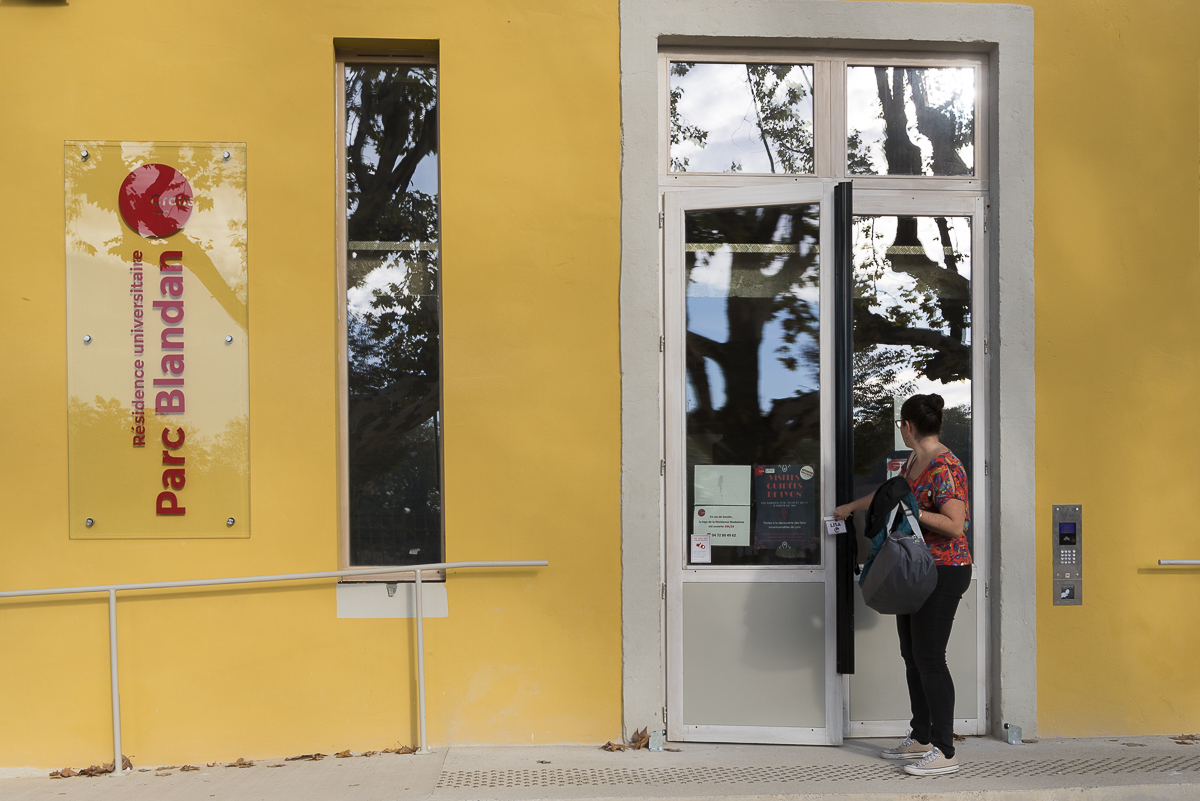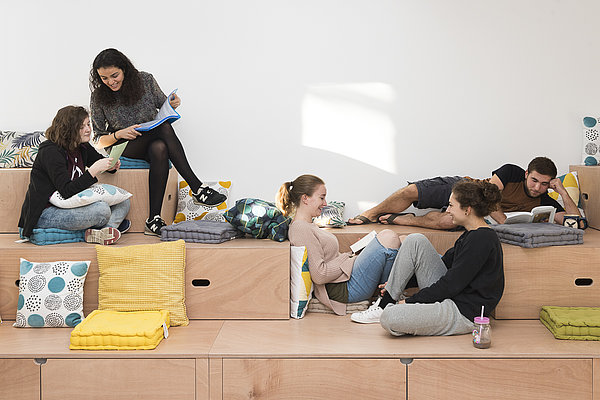Housing
Will you need housing for your studies in Lyon Métropole ? We help you to find a place and assist you with formalities.
What type of housing should you choose ?
Student residences
Frequently located near universities, student residences offer various services (collective areas, laundry rooms, bike garage...) in addition to furnished housing.
There are number of private student residences and Crous housing in Lyon Métropole : find the one that meets your needs on our student residence list (french only).
Make a housing request to Crous
You must make a request on the Crous site by compiling your Student Social File (Dossier Social Etudiant, or DSE) with your request for a scholarship and housing, between January 15 and April 30 of each year.
Crous housing is awarded in priority to scholarship students and is attributed according to resources for the university year (renewable request).

Shared rentals

Living in a larger apartment while limiting expenses, not being alone, live with friends... Home sharing can have number of advantages for students.
2 types of lease exist for share rentals:
- An individual lease: each renter signs a lease with the ownerand is responsible for his or her rent only. Your housing unit is divided into various surfaces and flatmates are not legally tied to the others.
- A single lease signed by joint renters: each individual has the same rights and obligations, and everyone is equally responsible for the rental in case of damage or problems. You have to discuss with the other renters on how to organize for sharing the rent, charges, shopping, cleaning and so on.
Did you know ?
The joint rental clause stipulates that co-renters are financially responsible for each other. If one renter does not pay his or her rent, another renter must pay it. The joint rental clause continues for up to six months after you have left the housing unit (corresponding to the end of your advance notice).
Discover solidarity rentals
If you want to co-rent while being involved in a solidarity project, various types of solidarity rentals are possible.
- KAPS (Koloc’ A Projets Solidaires) are co-rentals for limited budgets that allow living as a community, in a priority neighbourhood, focusing on social and solidarity projects.
- What about sharing the rent.. and social links with an elderly person with inter-generational co-rentals in their home ? You can for example suscribe on (french-speaking) ESDES Inter-Générations association website.
More solidarity rental and co-rental offers on Socoloc and Loc & coloc (french-speaking) websites.
Sub-rentals
You can also sublet your housing unit or look for a unit to sublet. However, certain points are mandatory:
- The owner must agree in writing to the sub-rental and to the monthly amount of the sub-rental;
- The amount of the sub-rental must not be more than the rental amount, and must be declared to the tax authorities by the one who get the money,
- Whether the rental is made directly with the owner or with an agency, a sub-rental agreement must be drawn up and signed by all parties.
Sites like Swap&study, Studyenjoy or HousingAnywhere exist to exchange your housing unit with another student in France or worldwide.
Temporary housing
For a night, a week or a bit more until you can find permanent housing : there are several temporary housing solutions for students, in addition to hotels :
- In student residences with Bed&Crous and Habitat Jeunes short-term housing offers (french-speaking websites).
- At someone's home on sites like Yestudent or Couchsurfing.
- At a youth hostel : there are several youth hostels in Lyon Métropole, find a non exhaustive list on This is Lyon (english-speaking) website and their "cool places to stay in Lyon" page.
- In student or young residences managed by associations such as UNHAJ, Escale Lyonnaise, Popinns or UNME (french-speaking websites only).
- At an MFR (Maison Familiale et Rurale) in rural areas : consult the MFR Auvergne Rhône-Alpes french-speaking website.
Housing rental formalities
Putting together a rental file
Whether you live in public or private housing, you must put together a rental file and give it to your landlord, along with several justification documents.
Did you know?
Your landlord does not have the right to request information concerning your health or the health or your guarantor, justification of personal finances nor your police record.
Documents requested :
- your bank account information
- your I.D
- proof of domiciliation and receipts of the last three rents
- proof of professional situation : for students, a copy of your student card or certificate of school attendance
These are the same documents that will be requested of your guarantor.
Sign a rental lease
If your file is accepted for housing, you must sign a rental lease : this mandatory and official document that lists information concerning the lessor and the lessee. The owner, the renter and the agency (if you are using one) must have a copy of the rental lease.
Find here what you should know (and check) before signing the lease
Don't forget : you must take out housing insurance when you move in.
Do you know the "bail mobilité"(mobility lease) ?
The Bail Mobilité (meaning “mobility lease”) is a new French furnished rental contract for students and tenants looking for an apartment for just a few months. It cannot be extented for longer than 10 months and have specific benefits, opposed to the classic furnished rental leases : you won't be asked to pay a security desposit to the landlord (either you have to present solid guarantee file).
Get more details about "bail mobilité"
Moving in and out
Easy ways to equip yourself and recycle furniture
Make a request to Lyon municipality to reserve a parking place for moving in
State of the premises
Upon entering and leaving, an assessment must be made of the state of the premises and signed by you to accept the evaluation of the housing unit’s condition. After the assessment, you have 10 days to notify your lessor or agency of any problem that was not noted during the assessment.
Give notice before leaving
To leave a housing unit, the lease must be broken. For an apartment renter, notice must be given 3 months before leaving, or only 1 month before leaving if the apartment is located in a tense area (like most of the Lyon Métropole and Villeurbanne municipalities) : check if you live in a tense area by taping your postal code here.
The release (a letter specifying that you are leaving the housing unit) must be sent by registered letter to your lessor. The date of notice is the postal date of this letter.

